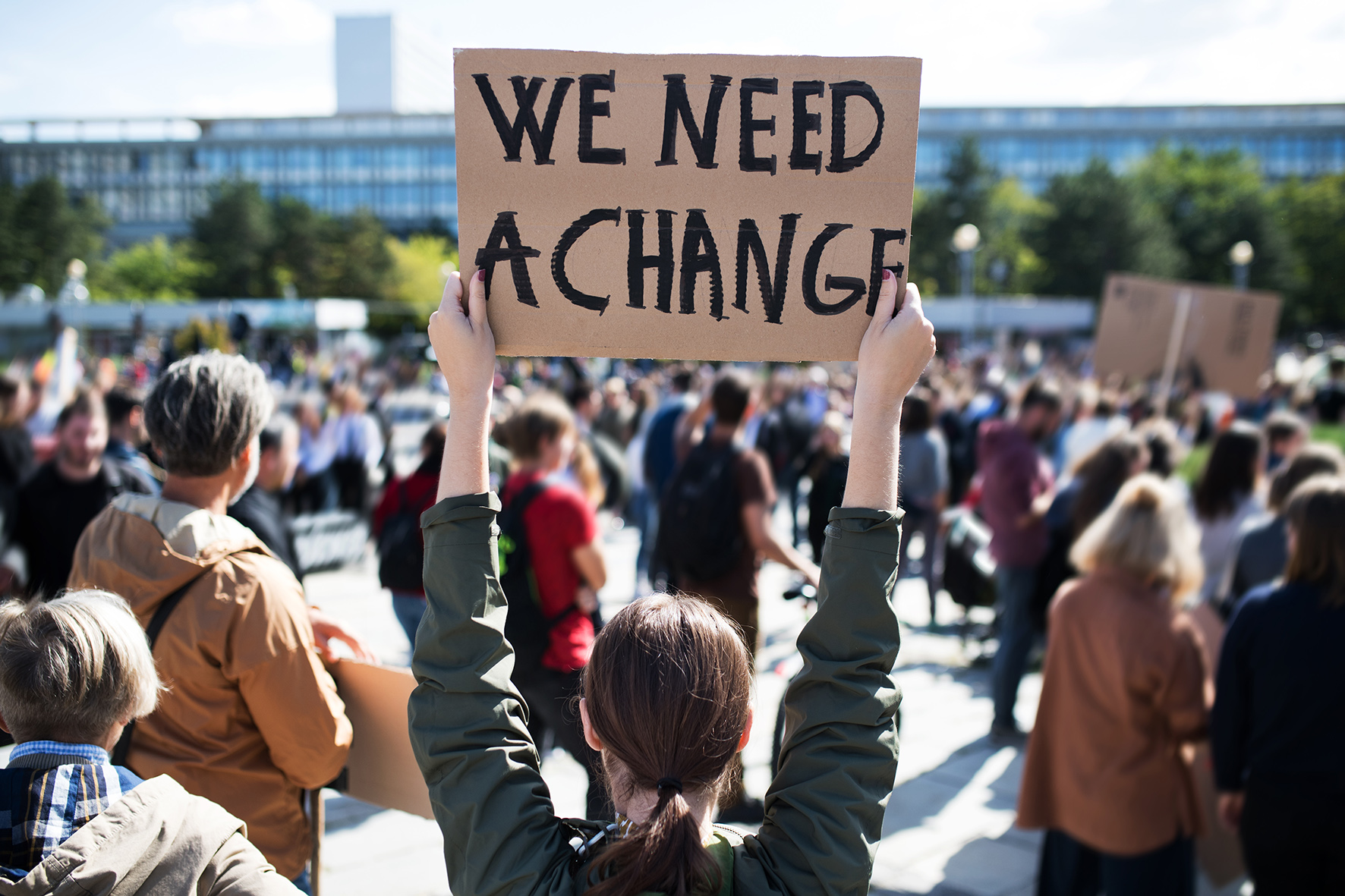Religious freedom or gender equality? Women in leadership positions
Religious freedom or gender equality? Women in leadership positions
Conflicts between religious freedom and gender equality are gaining more attention. Can religious freedom justify excluding women from leadership positions?
A case study: a conflict of rights
In February 2022, a group of Dutch youngsters initiated a petition to resist the increasing number of women on the electoral list of their political party. The youngsters in question are all members of a Dutch Reformed Christian party called the SGP. Through the petition, they urged the party board to speak out against allowing women to run for political candidacy for the SGP. According to the group of youngsters, allowing women on the electoral list conflicts with the principles of the party.[1] These dictate that women are unfit for political participation. This idea is derived from biblical texts that place women under the control of men. The subordination of women is viewed as an inevitable consequence of the order of creation.[2]
The SGP’s stance towards women has been a controversial issue for decades. From this party’s perspective, government offices are to be reserved solely for men. For this reason, the SGP refused to allow women to stand for election for many years. In 2012, however, the European Court of Human Rights impelled the party to permit women on their electoral list. Although all formal restrictions for women have been removed, the SGP refuses to change its program of principles. They continue to advocate the idea that women are unsuited to stand for election and discourage women from running for candidacy. The SGP experienced this forced change of policy as a violation of their religious freedom.[3]
Therefore, this case study illustrates a conflict of rights that is often at play in liberal society: a conflict between the right to religious freedom and the right of women to equal treatment. The SGP appeals to the right to religious freedom to justify the exclusion of women from political candidacy. It hereby intervenes with the right of women to stand for election. The European Court of Human Rights interfered with the SGP’s right to religious freedom to protect women’s right to equal political participation. It is clear that there is a tension between religious freedom and gender equality – but which should be prioritised?
Liberalism: religious freedom or gender equality?
Freedom of religion is a vital aspect of liberal society. Article 9 of the European Convention on Human Rights ascribes this right to all human beings. According to this article, religious institutions have the right to internal autonomy. This means that they have the right not to be interfered with by the government.[4] Religious freedom is a right that is supported by liberalism. So, it makes sense only within a liberal society. Liberalist views emerged in Europe to promote religious toleration. The main idea of liberalism is that people should be able to live their lives freely without the interference of others. Thus, individuals should have the freedom to decide what religious beliefs to adhere to.[5]
Liberal society, then, is rooted in the ideal of individual freedom. But this individual freedom is subject to certain limits. This is because liberalism advocates a similar freedom for all, meaning that the freedom of one should not impair the freedom of another. For this reason, religious freedom is not absolute. It is restricted by considerations of other types of freedom, like the freedom of women to run for candidacy.[6] Hence, the exclusion of women from political positions cannot plausibly be justified by an appeal to religious freedom. Religious freedom depends on a liberal context, and liberal society requires equal rights. Clearly, refusing to allow women on the electoral list is not consistent with the principle of equal rights.
Gender equality in the religious domain
The SGP example is about the exclusion of women from political leadership positions. But what about the exclusion of women from leadership positions in the Catholic Church? Does the principle of equality still take precedence over religious freedom if it is about religious institutions?
The Catholic Church traditionally supports the idea that only men can be ordained to priesthood. This is because Jesus chose men as his apostles. Women have been excluded from priesthood on the basis of this belief.[7] This refusal to ordain women to priesthood is restricted to the religious domain. Whereas the SGP wishes to exclude women from political leadership, the Catholic Church excludes women from religious leadership. One might say that, upon entering the religious domain, religious freedom takes precedence over the principle of equality. This is a point that is often accepted. Inequality in the Church is tolerated on account of the internal autonomy of religious institutions. But the question is whether this is tenable in the framework of liberalism.
Signs of change
Most churches still exclude women from leadership positions. But religious institutions, like the Catholic Church, seem to be slowly adapting to the liberal idea of equality. During the Synod Assembly in Frankfurt in January 2022, the German ‘Synodal Way’ voted for the admission of women to ordained offices in the Catholic Church. A majority of 85% accepted a document in favour of the ordination of women. The document suggests that there is no clear line in the tradition that excludes women from priesthood. There have always been opposing developments. Thus, we should question the prevalent structures of power. What needs to be justified is not the admission of women to ordained offices, but their exclusion.[8]
It seems, then, that the religious domain is not immune to liberal pressures. The conflict between religious freedom and gender equality is under debate in both the political and religious realm.
Want to learn more about similar topics? Go to the EARS Dashboard and receive weekly updates.
Sources
[1] Jonge SGP’ers willen uitspraak bestuur tegen vrouw op kieslijst (rd.nl)
[2] Toelichting op het Program van Beginselen van de Staatkundig Gereformeerde Partij
[3] ‘Politiek ongeschikt’, maar vooruit. SGP-vrouwen mogen op de kieslijst – NRC
[4] Freedom of Religion and Gender Equality: Inclusive or Exclusive?
[7] Vatican website gives space to group demanding female priesthood – Independent.ie
[8] Duitse Synodale Weg stemt voor vrouwenwijding en versoepeling celibaat – Katholiek Nieuwsblad






